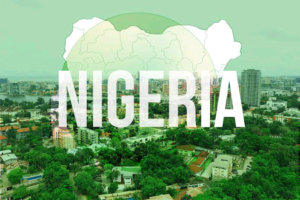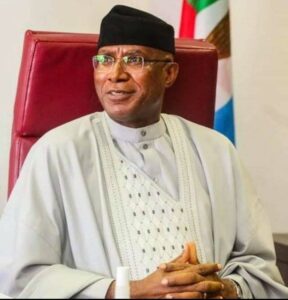ON REESTABLISHING THE LEGAL FRAMEWORK FOR THE FEDERAL GOVERNMENT’S INITIATIVE TO END GAS FLARE THROUGH ITS NIGERIAN GAS FLARE COMMERCIALIZATION PROGRAMME (NGFCP)
*-By Zik Gbemre*
By Zik Gbemre
With regards to the Federal Government’s efforts towards ending gas flare in the country with its Nigerian Gas Flare Commercialization Programme (NGFCP), the enabling legal framework upon which the Federal Government is relying on to assume the sole right in the commercialization of flared gas in the course of oil exploration, was recently made known to the Nigerian public by the NGFCP Program Manager, Office of the Minister of State for Petroleum Resources, Mr. Justice Derefaka, who cited relevant provision of the 1969 Petroleum Act which gave the sole right of gas commercialization to the Federal Government.
According to Derefaka, “We are looking at exercising our right in the Petroleum Act of 1969 in Section 9 and 11 and in particular, paragraph 35b, where the Federal Government made it clear that they would take this flare gas from the International Oil Companies (IOCs) without payment of royalties and give it to Competent Third Parties that will have the technology and of course the financial power to come up with innovative gas utilization projects and convert this flare gas instead of wasting it…The strategic idea is to convert it to what we call flare gas to market products like LNG, LPG, Fertilizer, Urea, Methanol and the likes of it to further create jobs and expand the revenue base of the nation’s oil and gas sector for the economy.”
The NGFCP Project Manager, who recently returned from Texas, United States of America (USA), where he spoke to the massive gathering of US key investors in gas development on the viability of investing in Nigeria’s gas flare commercialization initiative, revealed that: “We have more gas than crude oil in this country and as I rightly mentioned, we have proven reserve that is about 202 trillion cubic feet of gas, and of course unproven is about 603 cubic feet of gas which we have more in abundance than crude oil. Now, what the NGFCP is seeking to achieve is that when oil and gas operators go to look for crude oil, there is gas that comes with the crude oil which is called Associated Gas (AG). It is this gas that the oil and gas company for some reasons, possibly because they do not have the economies of scale, do not have a use for it on site or they do not have technology for reinjection and they have to flare. Failure to flare, for some reasons, will cause over pressure and of course explosion. However, there is a regulation in this country that says that gas flaring is not acceptable. But if you must flare, you may get a penalty which was until last year, 5th of July 2018 was around 0.03 cent per dollar cubic feet of gas.”
Derefaka accordingly, made it clear that “Mr. President, of course, to give teeth to the Nigerian Gas Flare Commercialization Programme to bite when we bark, is that he came up with a new regulation called the flare gas prevention and pollution regulations 2018 to implement the Nigerian gas flare commercialization policy. So, in a nut shell, what the NGFCP is seeking to achieve is to convert this hitherto wasted flare gas to wealth.”
As noted, Nigeria has around 202 trillion cubic feet of proven gas reserve, and only 25% of this reserve have been produced and developed for the nation. Nigeria is also ranked ninth on the list of countries with natural gas in the world. On the continent, we are the highest as we are told. And yet upon this figure, we are still the highest among the gas flares countries globally. But with all the recently reported activities of the NGFCP, it shows that the Federal Government has made it a priority to unlock and harness the potential of the nation’s gas resources, which will support sustainable economic growth and diversification. More importantly is the Federal Government commitment to a national flare out target by the next year, 2020. Facts and figures on ground further indicate that this development has given rise to Nigerian gas flare commercialization programme that will add value to the gas resources for wealth creation by harnessing Nigeria’s gas to transit from the era of air pollution to revenue and job creation.
As reported some few months ago, the NGFCP has the potential of generating approximately $3.5bn of inward investment, with the potential Gross Domestic Product (GDP) impact estimated at over $1bn per annum. With the elaborated prospects of what the NGFCP initiative can bring to Nigeria, especially with the interest being shown by the US Government and its Investors, we strongly believe that this project at the long run, would change the face of the Nigerian extractive industry, particularly for the good of the locals and people of the Niger Delta region that bears the brunt of the industry.
Zik Gbemre.
October 15, 2019
We Mobilize Others To Fight For Individual Causes As If Those Were Our Causes




